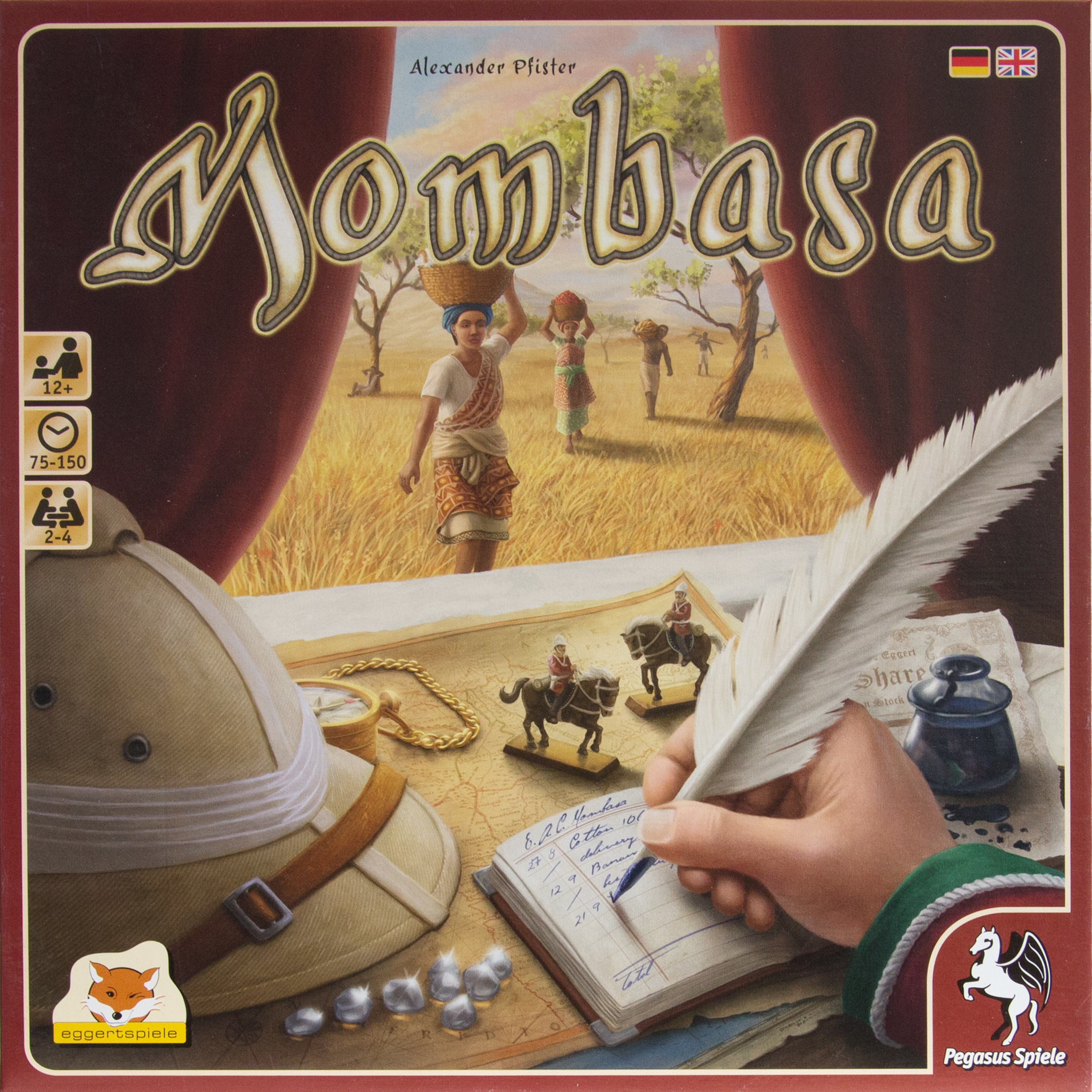
Players compete to turn a profit during the colonial era in Africa. You’ll invest in four chartered companies and use your influence to help them expand across the continent. This will improve the value of your shares in these companies. In this demanding strategy game, players will also trade in bananas, coffee or cotton, work together with diamond merchants and even ensure that the accounts are kept up to date. To make the most of this you’ll need to have the correct action cards (back) in your hand at the same time, which needs excellent forward planning. The various mechanisms in “Mombasa” fit together like cogs in an extremely elegant machine; the multitude of tactical possibilities create a sense of tension right up until the final scoring.
“Mombasa” was already a highly controversial game in 2016, in which the aim is to exploit the continent “most efficiently”. This is how the then jury chairman Tom Felber described it in the Neue Zürcher Zeitung. One plays “a bit of colonialism”, Felber said, “involving exploitation and slavery, which the rules introduction does not conceal.” He criticised that “Mombasa” portrayed the colonisation of Africa “as mechanical accountant bean-counting with bananas”. “If only it was at least meant to be satirical. In any case, the game’s ambition and its childishly naïve view of the subject do not go together.” Tom Felber asked, “But why is it still considered completely normal in the board game scene?”
Today, five years later, this is certainly no longer the case. Those parts of the board game scene that report on the board game as journalists and bloggers overwhelmingly support the initiative “Playing for Tolerance – Against Racism and Xenophobia”. In significant parts of society, sensitivity to the crimes of colonialism has clearly increased. A game like “Mombasa”, whose illustration reproduces old colonial clichés and whose course of events uncritically accepts structures of colonialism, would meet with resolute opposition today.

